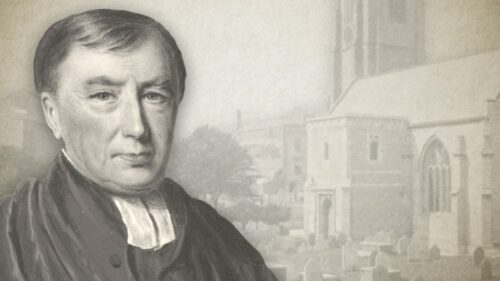
July 17—Morning Devotion
“I go to prepare a place for you. And if I go and prepare a place for you, I will come again and receive you unto myself, that where I am, there ye may be also.”—John 14:2, 3
How shall I ever sufficiently enter into an apprehension of the love of Jesus? Much less, how shall I ever sufficiently love thee, and adore thee, thou unequalled pattern of excelling love, blessed, precious Jesus? Was it not enough to have given such palpable evidences of thy love in dying for poor sinners; but must thou tell them also before thy departure the cause for which thou art gone away, and to give them an assurance, at the same time, that thou wouldest come again, and take them home with thee to glory? Oh help me, Lord, to love thee, to live to thee, to be always on the look out for thee, and to rejoice with a joy unspeakable in the promise of thy coming. And, my soul, while thou art taking all the sweetness of those precious words of thy Jesus to thyself, in the prospect of his shortly coming to take thee to himself, let them also have their full comfort under any bereaving providences of thy friends. Wouldest thou regret if an earthly king had conceived such a love to any friend of thine, that he had sent for him to advance him to some high dignity, to make him his favourite, and to load him with honours? Considered as to earthly accommodations, would this advancement of some near and dear friend of thine be distressing to thee, because thou wert to see him no more? Nay, would not the generosity of the prince be highly extolled by thee; and more especially if the messengers which came to fetch thy friend, brought with them a promise, that, ere long, a royal guard would be sent to take thee also, to live with thy friend for ever, in the king’s palace, and under the king’s eye, both enjoying the royal favour? But what would all this fading, dying, perishing, and uncertain grandeur be, to that which Jesus promiseth in these blessed words of the morning? And hath Jesus taken any of thine home to his glory? Are they now at the fountain head of blessedness, and art thou weeping over their breathless remains? Raise up, my soul, thy thoughts from earth to heaven. Hear the voice that speaks, “Blessed are the dead which die in the Lord.” Keep up the constant expectation of thine own call. Walk as on the borders of the invisible world. And above all, so watch the daily, hourly, visits of Jesus, by his grace, and enjoy the sweet communion and fellowship in spirit, by which he now speaks to his people, and they to him, that when Jesus draws back the curtain of thy bed at death, and appears to thy ravished view in all his glory, thou mayest leave the trembling body, and run to his embraces, crying out, “My Lord, and my God.”
Robert Hawker (1753-1827) was an Anglican (High-Calvinist) preacher who served as Vicar of Charles Church, Plymouth. John Hazelton wrote of him:
“The prominent features…in Robert Hawker's testimony…was the Person of Christ….Dr. Hawker delighted to speak of his Lord as "My most glorious Christ.” What anxious heart but finds at times in the perusal of the doctor's writings a measure of relief, a softening, and a mellowing? an almost imperceptible yet secret and constraining power in leading out of self and off from the misery and bondage of the flesh into a contemplation of the Person and preciousness of Christ as "the chiefest among ten thousand and the altogether lovely." Christ and Him crucified was emphatically the burden of his song and the keynote of his ministry. He preached his last sermon in Charles Church on March 18th, 1827, and on April 6th he died, after being six years curate and forty-three years vicar of the parish. On the last day of his life he repeated a part of Ephesians 1, from the 6th to the 12th verses, and as he proceeded he enlarged on the verses, but dwelt more fully on these words: "To the praise of His glory Who first trusted in Christ." He paused and asked, "Who first trusted in Christ?" And then made this answer: "It was God the Father Who first trusted in Christ."
Robert Hawker on the Biblical Covenants (Complete)
Robert Hawker's Poor Man's Morning Portions





